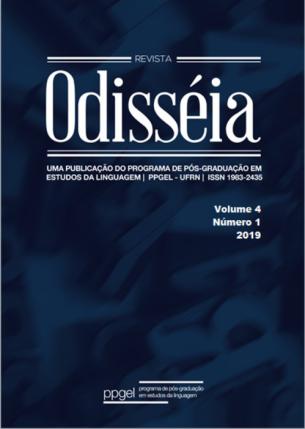“Quem não deve, não Teme(r)”
discourse and discursive formations
DOI:
https://doi.org/10.21680/1983-2435.2019v4n1ID14471Keywords:
Discourse Analysis, Proverbs, Détournement, Enunciation, Discursive formationAbstract
In this paper, we develop research and reflection as for the use of the détournement “Quem não deve, não teme(r)”, with the purpose to distinguish the discursive formations in which their speakers and enunciators are immersed. By means of a quali-quantitative approach, we analyze a corpus composed by two chronicles: “‘Quem não deve não teme’ é uma frase fascistóide”, by Reinaldo Azevedo, and “Quem não deve, não Temer”, by Agamenon Mendes Pedreira. As a theoretical grounding, we follow the teachings of the French Discourse Analysis, especially those advanced by Maingueneau (1997; 2004; 2008); Charaudeau and Maingueneau (2016); and Ducrot (1987). Among the results achieved by means of our research, we point out the distinction of the interdiscursive relations permeating both the proverbial utterance and the détournement analyzed as well as the discernment of the discursive movements and the argumentative strategies connected to them.
Downloads
Downloads
Published
How to Cite
Issue
Section
License
Thisa work has been licensed under Creative Commons - Atribuição - NãoComercial - CompartilhaIgual 3.0 Não Adaptada.


















